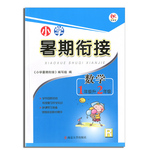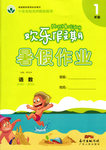题目内容
One day, during the long summer holiday, Mrs. Martins took Brendon and his younger brother Kim to the beach. As soon as they got there, the two children _______ down to the sea to try out their new surfboards(冲浪板). They were soon swimming out to the _____ and riding back on their boards.
After a while, Brendon noticed that Kim was ____ away from him.
“Come back, Kim,” he shouted. “Mum said we have to stick together.” Kim put his arms over the side of his board and began paddling (划水) , but _____ getting closer, he began moving further away.
“Brendon, help!” called the young boy. “I’m ____ in a rip current (离岸流).” Brendon quickly paddled over to his _____.
“____ the back of my board and I’ll pull you to the beach,” he told the ____ boy. But the rip was too ______ and soon both Brendon and Kim were moving further from the beach.
“I can’t ____ see our beach any more,” cried Kim.
“Yes, but we’re not moving out of the sea any more. We’re just floating along the coast. See, there’s the next beach.” said Brendon ____. “We’re moving closer to it.”  Sure enough, the current was now taking them closer to the beach and becoming_____.
Sure enough, the current was now taking them closer to the beach and becoming_____.
“Right, it’s time to paddle,” said Brendon, suddenly full of ____.
Before long the children paddled to the beach _____ they sat for a few moments to _______ their breath. After a while, they_____ up their boards and started the long walk back to their mother. When they got there, they were _______ to find the beach full of people and boats.
“Thank goodness!” cried their mother running to _________ them. “We were just about to start a search. One minute you were in the waves in front of me and the next you were gone. I was so_____.”
“It’s OK,” said Brendon, hugging his mother. “We did just as you told us and ______ together.”
1.A. rushed B. got C. came D. jumped
2.A. beaches B. waves C. fields D. sands
3.A. turning B. breaking C. floating D. pulling
4.A. because of B. in addition to C. in case of D. instead of
5.A. found B. caught C. stricken D. rested
6.A. mother B. sister C. friend D. brother
7.A. Hold onto B. Put down C. Hold up D. Take off
8.A. determined B. frightened C. concerned D. excited
9.A. hard B. deep C. strong D. soft
10.A. still B. already C. hardly D. even
11.A. carefully B. sadly C. cheerfully D. eagerly
12.A. weaker B. clearer C. lower D. faster
13.A. spirit B. energy C. power D. force
14.A. how B. why C. where D. when
15.A. save B. feel C. hold D. catch
16.A. picked B. mixed C. rolled D. fixed
17.A. angry B. anxious C. hurried D. surprised
18.A. punish B. beat C. hug D. praise
19.A. disappointed B. worried C. embarrassed D. amazed
20.A. stuck B. shouted C. shook D. swam
 学而优暑期衔接南京大学出版社系列答案
学而优暑期衔接南京大学出版社系列答案 Happy holiday欢乐假期暑假作业广东人民出版社系列答案
Happy holiday欢乐假期暑假作业广东人民出版社系列答案

 destroy all those things. Will we use our words to hurt or to heal? The choice is ours.
destroy all those things. Will we use our words to hurt or to heal? The choice is ours.